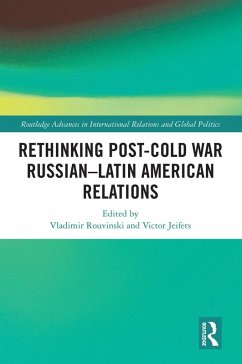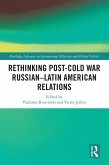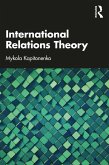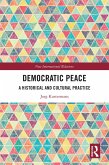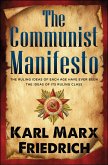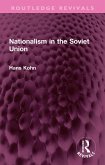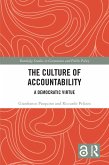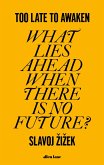Rethinking Post Cold-War Russian-Latin American Relations offers the first interdisciplinary study of Russian-Latin American relations after the end of the Cold War.
Dieser Download kann aus rechtlichen Gründen nur mit Rechnungsadresse in A, B, BG, CY, CZ, D, DK, EW, E, FIN, F, GR, HR, H, IRL, I, LT, L, LR, M, NL, PL, P, R, S, SLO, SK ausgeliefert werden.
"Football and revolution, passion and romanticism, heroes and celebrities...That is how Soviet people perceived Latin America. Today's view is much less exciting but sober and pragmatic. Russia lost a big part of former relations after the Cold War, yet it gradually increased its connection on a new basis. As a result, Latin America is no longer a space for ideological struggle but a critical element of the multipolar and diversified world. This excellent book gives a comprehensive picture of how this change happened and what comes next."
Fyodor Lukyanov, Editor of Russia in Global Affairs, Academic Director at the International Valdai Discussion Club
"Rethinking Post-Cold War Russian-Latin American Relations, offers a decisive contribution to understanding the transformations and continuities that characterize interactions between Russia and Latin America following the end of the bipolar conflict. The volume provides a conceptually sophisticated account that is also impressive in its disciplinary, thematic, and temporal breadth. This is a must-read for students, scholars, and policymakers interested in Russia's 21st-century role in the region."
Arlene B. Tickner, Faculty of International, Political and Urban Studies, Universidad del Rosario, Bogotá, Colombia
"After the disappearance of the USSR, Russia neglected its relations with Latin America that for decades had been important. However, the new situation and the awareness of being a global player have caused Russia's interest in Latin America to recover. This book brilliantly addresses this scenario."
Manuel Alcantara Saez, Universidad de Salamanca
"With input from experts from Russia and other nations, this book reviews Russia's renewed presence in Latin America. It takes stock of the soviet-era background and several case studies (Argentina, Brazil, Colombia, Cuba, Mexico, and Venezuela) to identify general patterns for relaunching Russian-Latin American ties. It is a volume where the plurality of looks coincides with the rigor of the approaches to the topic."
Armando Chaguaceda, El Colegio de Veracruz
"This edited volume represents a renewed and enriching multidimensional vision of Russian-Latin America relations. It offers a fresh and rigorous perspective on historical legacy, current development, and future potentialities of Russian engagement with the region."
Andres Serbin, President of Regional Coordinator for Economic and Social Research CREIS
"Russia is back in Latin America, and history matters. This timely and multidisciplinary book is a must-read to learn the motives and reasons for Moscow's comeback and the consequences this return has for Latin American countries and international politics."
Detlef Nolte, German Institute for Global and Area Studies (GIGA)
"This is a wonderful - and virtually unparalleled --contribution to the literature on Russian foreign relations."
Roger E. Kanet, Profesor Emeritus, University of Miami and University of Illinois Urbana-Champaign
"This is the first book to cover the full sweep of Russia's engagement in Latin America after the Cold War. It is a must-read for anyone looking to navigate contemporary Russian relations with this part of the world."
Igor Zevelev, Global Fellow, Kennan Institute, Wilson Center
"This timely work explains both Russia's re-engagement with Latin America and the Caribbean and why Russia remains a key actor in the region. An impressive array of international experts conclude that the answers lie in past interactions. This book is essential reading for those interested in both contemporary Russian foreign policy and Latin America and the Caribbean more generally."
Mervyn Bain, University of Aberdeen
Fyodor Lukyanov, Editor of Russia in Global Affairs, Academic Director at the International Valdai Discussion Club
"Rethinking Post-Cold War Russian-Latin American Relations, offers a decisive contribution to understanding the transformations and continuities that characterize interactions between Russia and Latin America following the end of the bipolar conflict. The volume provides a conceptually sophisticated account that is also impressive in its disciplinary, thematic, and temporal breadth. This is a must-read for students, scholars, and policymakers interested in Russia's 21st-century role in the region."
Arlene B. Tickner, Faculty of International, Political and Urban Studies, Universidad del Rosario, Bogotá, Colombia
"After the disappearance of the USSR, Russia neglected its relations with Latin America that for decades had been important. However, the new situation and the awareness of being a global player have caused Russia's interest in Latin America to recover. This book brilliantly addresses this scenario."
Manuel Alcantara Saez, Universidad de Salamanca
"With input from experts from Russia and other nations, this book reviews Russia's renewed presence in Latin America. It takes stock of the soviet-era background and several case studies (Argentina, Brazil, Colombia, Cuba, Mexico, and Venezuela) to identify general patterns for relaunching Russian-Latin American ties. It is a volume where the plurality of looks coincides with the rigor of the approaches to the topic."
Armando Chaguaceda, El Colegio de Veracruz
"This edited volume represents a renewed and enriching multidimensional vision of Russian-Latin America relations. It offers a fresh and rigorous perspective on historical legacy, current development, and future potentialities of Russian engagement with the region."
Andres Serbin, President of Regional Coordinator for Economic and Social Research CREIS
"Russia is back in Latin America, and history matters. This timely and multidisciplinary book is a must-read to learn the motives and reasons for Moscow's comeback and the consequences this return has for Latin American countries and international politics."
Detlef Nolte, German Institute for Global and Area Studies (GIGA)
"This is a wonderful - and virtually unparalleled --contribution to the literature on Russian foreign relations."
Roger E. Kanet, Profesor Emeritus, University of Miami and University of Illinois Urbana-Champaign
"This is the first book to cover the full sweep of Russia's engagement in Latin America after the Cold War. It is a must-read for anyone looking to navigate contemporary Russian relations with this part of the world."
Igor Zevelev, Global Fellow, Kennan Institute, Wilson Center
"This timely work explains both Russia's re-engagement with Latin America and the Caribbean and why Russia remains a key actor in the region. An impressive array of international experts conclude that the answers lie in past interactions. This book is essential reading for those interested in both contemporary Russian foreign policy and Latin America and the Caribbean more generally."
Mervyn Bain, University of Aberdeen

